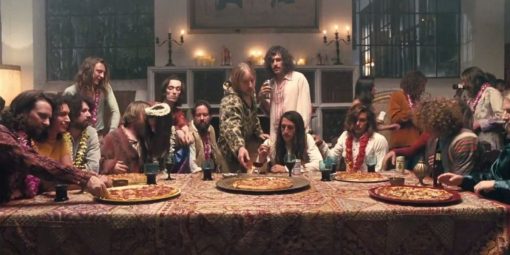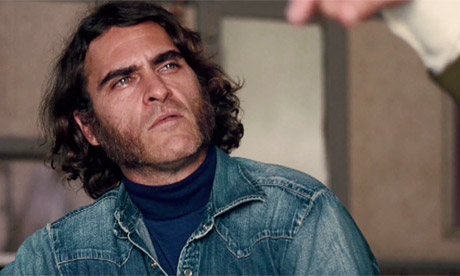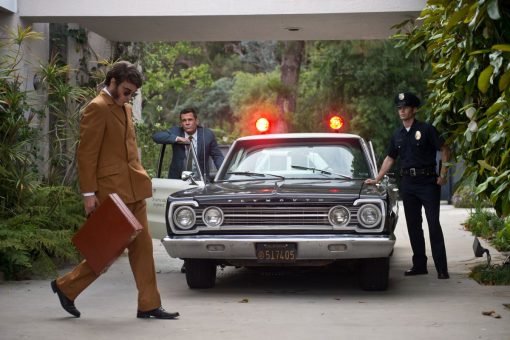What kind of mindset do you have to be in to walk out of a movie? Something really must have gone wrong for that to become the best response, for your brain to tell your body to smuggle it out as quickly as possible.
Perhaps it found the material so offensive that it just had to bail before some kind of chronic information-indigestion caused it to short circuit, maybe it lost its grasp of the plot so hopelessly that it could do nothing but solemnly surrender or perhaps it simply arrived at the conclusion that this piece of art simply was not deserving of its continued attention, despite the money and free-time that had already been sacrificed in its name. Whether it’s intentional or otherwise, walking out of a film before it ends can make you look like you’re making some sort of inflammatory statement, like you’re surreptitiously advising your peers to do the same (it does seem like it often has a domino effect). More often than not, it’s just a sign that you’ve had enough, you don’t expect to be entertained or engaged and you don’t mind surrendering the cash you put down in pursuit of something more interesting, or even just an earlier bedtime.
People have been walking out of Inherent Vice, they have doing it so much that it’s actually made the news. Some of them at the beginning, some half-way through and some right at the end. I can imagine there are probably all manner of reasons, but none of them mark Inherent Vice as any kind of cinematic failure, almost the opposite in fact. People have always, always walked out of Paul Thomas Anderson’s films, from Magnolia to Boogie Nights to Punch Drunk Love. I remember going into college the day after seeing (and being utterly blown away by) There Will Be Blood to find one of my friends loudly declaring that yes, they’d walked out because they’d found it to be one of the worst films they’d ever seen. They even went to far as to advise everyone else to avoid it (which is something I definitely do not condone).
Why is it that PTA’s films have such a polarizing effect? Simple, they aren’t for us, they are for him, his cast and his crew. He makes the films he wants to make, he doesn’t go to any great, empathetic lengths to make them more coherent or generally entertaining for the sake of the average viewer. So far as he’s concerned, the fact that they have to go on a general release is a bit of a formality. Alan Watts famously said “when you go to a concert and you listen to someone play Mozart, he has nothing to sell except the sound of the music. He doesn’t want to convert you to anything.” It’s a shared enjoyment of a certain point of view, Anderson’s is distinct and it’s entirely his, not everybody is going to see eye-to-eye, but for the people who do, the people who see the appeal, it’s magnificent.
For that reason (and many others), PTA remains just about my favorite film director of all time. You might be tempted to throw the ‘bias’ card down here, but honestly would you rather read me offering some measured, ‘Which Magazine’ style rundown of Inherent Vice like it’s a fucking stereo system? This is my read of Inherent Vice, I adored it, you might not, you might even decide to leave early and that’s a shame, but I’m not going to pretend that you can boil art down to a general, catch-all set of pros and cons.
Based on a similarly zany Thomas Pynchon novel of same name, the film starts out as a simple tale of a hedonistic, lackadaisical personal investigator (Joaquin Phoenix) draped in sixties style at the dawning of a new, daunting decade chasing up a case for an old ex (Katherine Waterston, pretty much his Great White Buffalo). She’s been sleeping with a local, unhinged property tycoon and in the process uncovered a plot to have him committed by his wife and her lover. She appeals to Doc’s lasting affection as an incentive, but before long she’s vanished too and Doc is left unspooling a dark, far reaching mystery involving neo-Nazis, new age cultists, the FBI and his LAPD arch-provocateur Bigfoot (Josh Brolin, with a head of steam to rival Thomas the Tank Engine).
The broader, farther-reaching aspects of the film aren’t exactly easy to follow and nor should they be, Doc is having as much trouble tying everything together as the audience is. The whole thing is reflexive of a bizarre, confused time for American culture, with hippies convinced they were on the cusp of some completely new social structure and the FBI certain that the nation was on the brink of an uprising. As the film progresses a massive, bizarre crypto-McCarthyist labyrinth is unearthed, littered with unhinged players with no obvious motive or allegiance, from a freaky massage parlor to a maritime drug smuggling outfit called Golden Fang. Doc isn’t overly interested in all that though, his ties to the case never really extend being his love for Shasta, something he sees reflected in Coy Harlingen (Owen Wilson): a reformed heroin addict, believed to be dead and planted in the thick of the maelstrom. Coy has absolutely no idea what the hell he’s doing and all he really wants is to get back to his wife (Jena Malone) and child, a motive that Doc deeply empathizes with.
The film has been compared in some cases to The Big Lebowski and Doc certainly has a sativa-flavoured whiff of The Dude about him, as he’s thrust from one insane situation to another, mired in a complicated yarn that is ultimately irrelevant to the narrative through-line (yet still fascinating to behold). This film has no big payoff, no obvious, sweeping statement to make, it simply is. Once the guiding conundrum of the film is resolved, an entirely new one surfaces and we’re thrust into a whole new act where you could have been forgiven for expecting an ending, but it’s in this final chapter that Doc really begins to make sense as a character.
Phoenix plays him brilliantly, affecting a kind of happy-go-lucky, inebriated swagger that’s charming and unsettling all at once. His utter bewilderment at much of the weirdness he faces (often leaving you unsure of whether it’s all really happening or he’s just tripping balls) and his almost deliberately haphazard aptitude as a detective are enormously amusing to observe. It’s the funniest Phoenix has ever been. Brolin is wonderful as the bullish, jaded LAPD enforcer, the cinema I saw the film at tends to attract a more ‘cultured’ crowd (their assertion, not mine), which made it even funnier when the cinema erupted into laughter at the sight of him basically fellating a frozen chocolate-covered banana. Wilson’s mumbling callow stylings fit his character perfectly and Martin Short makes a brief but delirious appearance as a lecherous, coked-up corrupt dentist (yes, there is such a thing in this world).
Inherent Vice is a glorious mess, a splatter of weird characters doing weird things in weird places at a weird time. It’s slapstick, surreal and willfully ambiguous, shifting in tone from facetious hilarity to tragic romance to metered consideration in the blink of an eye, all metered by a beautiful overarching narration delivered by Joanna Newsom and lifted verbatim from the source book. It’s not meant as an A to B journey but more a wider reflection, meandering through forks and alleys with little regard for who it might lose along the way. I’m not suggesting that people won’t get it because they’re not smart enough but merely that it’s a difficult film to love, and I wouldn’t encourage anybody to pretend to, nor to try and force it. I love it for my own reasons, the richness of the presentation, the pitch-perfect casting, the explorations of the growth of the bloated, corrupted specter of contemporary American culture. It’s a nightmare in flares, a PCP wasteland.

I won’t necessarily recommend it, but I will suggest that it’s well worth the risk. Personally, it’s the best film I’ve seen in ages, and I cannot wait to see it again. Who knows? You might come away feeling the same.
Some of the coverage you find on Cultured Vultures contains affiliate links, which provide us with small commissions based on purchases made from visiting our site.




